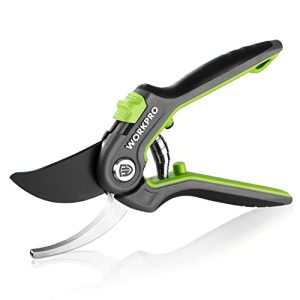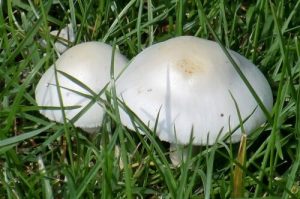Are you a proud chicken owner constantly looking for new ways to keep your feathered friends healthy and happy? With so many different feeds and treats available, it’s easy to get overwhelmed.
You might have noticed wild bird feed at the store and wondered, “Can my chickens eat that? ” After all, it seems like a convenient option, especially if you already have some at home for your backyard birds. But is it safe for your chickens, or could it cause more harm than good?
This article will unravel the mystery behind wild bird feed and its suitability for your beloved chickens. Stick around to uncover the truth and ensure your flock gets the nutrition they deserve!

Nutritional Needs Of Chickens
Chickens require a balanced diet to stay healthy, and feeding them wild bird feed isn’t ideal. Wild bird feed lacks essential nutrients like calcium and protein, which are crucial for strong eggshells and overall health. For optimal nutrition, specialized chicken feed is recommended.
Chickens require a balanced diet for optimal health. Their diet influences growth, egg production, and overall vitality. Understanding their nutritional needs is key to providing the right feed.Essential Vitamins And Minerals
Vitamins and minerals are crucial for chickens. They need Vitamin A for vision and growth. Vitamin D helps them absorb calcium, supporting strong bones and eggshells. Minerals like calcium and phosphorus are vital. They ensure proper bone development and egg production. Zinc and iron play a role in immune function.Protein Requirements
Protein is a major component of a chicken’s diet. It supports muscle development and feather growth. Growing chickens need more protein than adults. Laying hens also need adequate protein. It impacts the quality of eggs produced. Insufficient protein can lead to health problems.Impact Of Diet On Egg Production
Diet directly affects egg production in chickens. A balanced diet boosts egg quantity and quality. Poor nutrition leads to fewer and smaller eggs. Calcium is essential for strong eggshells. Protein affects the egg’s size and yolk quality. Providing a nutritious diet ensures healthy, productive hens. `Composition Of Wild Bird Feed
The composition of wild bird feed plays a crucial role in determining its suitability for chickens. Understanding the ingredients and nutritional content helps ensure that feeding chickens wild bird feed is safe and beneficial. Let’s explore the common ingredients, nutritional content, and additives often found in wild bird feed.
Common Ingredients
Wild bird feed typically contains seeds and grains. Sunflower seeds are a staple. Millet and cracked corn are popular choices. Peanuts and safflower seeds add variety. Dried fruits like raisins may be included. Each ingredient provides different nutrients.
Nutritional Content
Wild bird feed offers essential nutrients. Proteins support muscle growth. Fats provide energy. Vitamins and minerals boost health. Calcium strengthens bones. Fiber aids digestion. Balanced nutrition is vital for chickens.
Additives And Preservatives
Some wild bird feeds contain additives. Preservatives extend shelf life. Artificial colors enhance appearance. Salt may be added for flavor. It’s important to check for these. Ensure the feed is safe for chickens.
Safety Concerns
When considering what to feed your chickens, it’s crucial to understand the safety concerns associated with wild bird feed. While chickens might enjoy pecking at seeds meant for wild birds, not everything in these mixes is safe for them. Let’s delve into some of the primary safety concerns, including toxic ingredients, risks of contamination, and potential health issues.
Toxic Ingredients
Wild bird feed often contains seeds and grains that can be harmful to chickens. Some mixes include ingredients like chocolate or avocados, which are toxic to chickens. It’s like offering them a tempting treat that’s secretly harmful. Would you knowingly serve your chickens something that could hurt them?
Additionally, some bird feeds have preservatives or artificial additives. These can upset a chicken’s digestive system. Keeping your flock safe means being vigilant about these hidden dangers.
Risks Of Contamination
Imagine your chickens eating seeds that have been sitting in the open. Wild bird feed can be exposed to moisture, leading to mold. Moldy feed is a breeding ground for toxins. This can cause serious health issues in your chickens.
Moreover, wild bird feed can attract rodents. Rodents leave droppings, which can contaminate the feed. This contamination can introduce diseases to your flock. Protecting your chickens means ensuring their food is clean and safe.
Potential Health Issues
Feeding chickens wild bird feed can lead to health problems. Nutritional imbalances are common. Wild bird feed doesn’t provide the balanced diet chickens need to thrive.
Some chicken owners have noticed decreased egg production and weaker eggshells. This is often due to insufficient calcium and protein in their diet. It’s essential to give your chickens feed that supports their health and growth.
Have you ever seen a chicken with ruffled feathers or lethargy? These can be signs of poor nutrition. Ensuring your chickens have the right feed is crucial for their vitality.
Ultimately, while wild bird feed might seem like an easy option, the safety concerns make it a risky choice. Are you willing to gamble with your chickens’ health? Opt for specially formulated chicken feed to keep your flock healthy and happy.
Benefits Of Wild Bird Feed
Chickens thrive on diverse diets. Wild bird feed offers unexpected benefits. It enhances their health and vitality. This feed introduces new nutrients and flavors. Explore why wild bird feed could be a great addition to your chickens’ diet.
Supplemental Nutrients
Wild bird feed contains essential nutrients. These nutrients support chicken growth. They improve feather quality and egg production. Rich in vitamins and minerals, this feed strengthens immunity. A nutritious diet helps chickens stay healthy.
Natural Ingredients
Wild bird feed consists of seeds and grains. These ingredients are natural and unprocessed. Chickens enjoy these natural foods. They mimic what chickens find in the wild. Natural ingredients are safe and healthy for chickens.
Variety In Diet
Chickens need diet variety for optimal health. Wild bird feed introduces new textures and flavors. It prevents dietary boredom in chickens. This variety stimulates their appetite. Chickens enjoy exploring different foods. A varied diet ensures balanced nutrition.
Alternatives To Wild Bird Feed
Chickens enjoy a varied diet, but not all feeds are suitable. Wild bird feed, while tempting, isn’t ideal for chickens. It lacks essential nutrients. Chickens need a balanced diet to stay healthy. Several alternatives provide better nutrition. Let’s explore these options.
Commercial Chicken Feed
Commercial chicken feed is specially formulated for chickens. It contains balanced nutrients. Proteins, vitamins, and minerals are included. This feed supports growth and egg production. Available in pellets or crumbles, it suits different chicken breeds. Easy to store and use, it’s a convenient option.
Homemade Feed Mixes
Homemade feed mixes allow customization. You control the ingredients. Use grains, seeds, and legumes. Add vegetables for extra nutrients. It ensures freshness and quality. Homemade mixes can be tailored to your chickens’ needs. A cost-effective choice for many chicken owners.
Natural Foraging Options
Chickens love to forage. Natural foraging lets them find bugs, seeds, and greens. It enriches their diet and behavior. Provides exercise and mental stimulation. Chickens in free-range environments thrive. Foraging mimics natural living conditions. A sustainable and healthy feeding method.
Expert Opinions
Can chickens safely eat wild bird feed? This question puzzles many poultry owners. Experts provide valuable insights into this topic. Let’s explore their views.
Veterinary Insights
Veterinarians often emphasize balanced nutrition for chickens. They suggest wild bird feed lacks essential nutrients. Chickens need specific vitamins and minerals. Calcium and protein are crucial for their health.
Wild bird feed may not meet these needs. Veterinarians recommend caution. It’s best to use it sparingly, if at all. Always prioritize a chicken’s dietary requirements.
Poultry Farmers’ Experiences
Experienced poultry farmers share mixed experiences. Some occasionally feed wild bird mix to chickens. They observe no immediate harm when used in moderation.
Others notice changes in egg production or behavior. Their advice? Use wild bird feed as a treat. Not as a staple. Balance is key in their diet.
Research Findings
Research highlights the differences between bird feed types. Wild bird feed often contains seeds and grains. These lack the complete protein chickens require.
Studies suggest that regular consumption could affect health. Nutrient deficiencies might occur over time. Ensure feed is suitable for poultry to avoid issues.
Best Practices For Feeding
Chickens can eat wild bird feed, but it shouldn’t be their main diet. Wild bird feed lacks essential nutrients chickens need for health. Supplementing it with chicken feed ensures balanced nutrition for egg production and growth.
Feeding chickens can be an enjoyable yet challenging task. It’s not just about throwing some grains and hoping for the best. Understanding the best practices for feeding can improve the health and productivity of your flock. If you’re considering adding wild bird feed to their diet, there are some important practices you should follow.Mixing With Regular Feed
Mix wild bird feed with your chickens’ regular feed to create a balanced diet. Chickens need a consistent source of protein, vitamins, and minerals. Wild bird feed can add variety, but it shouldn’t replace their main feed. Start by mixing a small amount into their regular feed. Observe how they respond to the new addition. Gradually increase the portion if they enjoy it and show no signs of distress.Monitoring Health And Behavior
Keep a close eye on your chickens’ health when introducing wild bird feed. Look for changes in their feathers, energy levels, and egg production. Any sudden changes could indicate a dietary issue. Watch their behavior closely. Are they eating more or less than usual? Do they seem more active or lethargic? These observations can help you determine if the new feed is beneficial.Adjusting Diet Based On Needs
Every chicken is unique. Adjust their diet based on their specific needs and responses. If you notice weight gain or loss, it may be time to tweak their feed mix. Consider the season. Chickens may need more energy-rich feed in the winter. In the summer, lighter options might be better. Are your chickens free-ranging? If so, they might already be finding natural supplements to their diet. Adjust their feed to complement what they’re getting naturally. Your role as a chicken caretaker involves continuously learning and adapting. Are you ready to experiment and find the perfect blend for your flock?

Frequently Asked Questions
Can Chickens Safely Eat Wild Bird Feed?
Yes, chickens can eat wild bird feed in moderation. It usually contains seeds and grains that are safe. However, it shouldn’t replace their primary diet. Commercial chicken feed is formulated to meet their nutritional needs. Wild bird feed lacks essential nutrients for chickens.
Is Wild Bird Feed Nutritious For Chickens?
Wild bird feed offers some nutrition but lacks balance for chickens. It’s primarily seeds, which are not sufficient. Chickens need a balanced diet with proper protein, vitamins, and minerals. Relying solely on wild bird feed may lead to deficiencies in chickens.
Are There Any Risks Feeding Chickens Wild Bird Feed?
Feeding chickens wild bird feed can pose some risks. It may contain seeds that are hard to digest. Overconsumption can lead to obesity or malnutrition. Also, wild bird feed might attract pests. Always use it as a treat, not a staple diet.
How Often Can Chickens Eat Wild Bird Feed?
Chickens should eat wild bird feed sparingly, as an occasional treat. It shouldn’t be more than 10% of their diet. Regular chicken feed should be the primary source of nutrition. Treats, including wild bird feed, should be given in moderation.
Conclusion
Chickens can eat wild bird feed, but with caution. Monitor their health closely. Wild bird feed lacks some nutrients chickens need. Supplement with chicken-specific feed for balance. Always provide fresh water and clean feeding areas. Check for unwanted seeds or ingredients.
Observe their behavior for any changes. Healthy chickens mean happy chickens. A balanced diet ensures good egg production and growth. Keep these tips in mind. Your chickens will thrive. Remember, their well-being is in your hands. A little care goes a long way.






